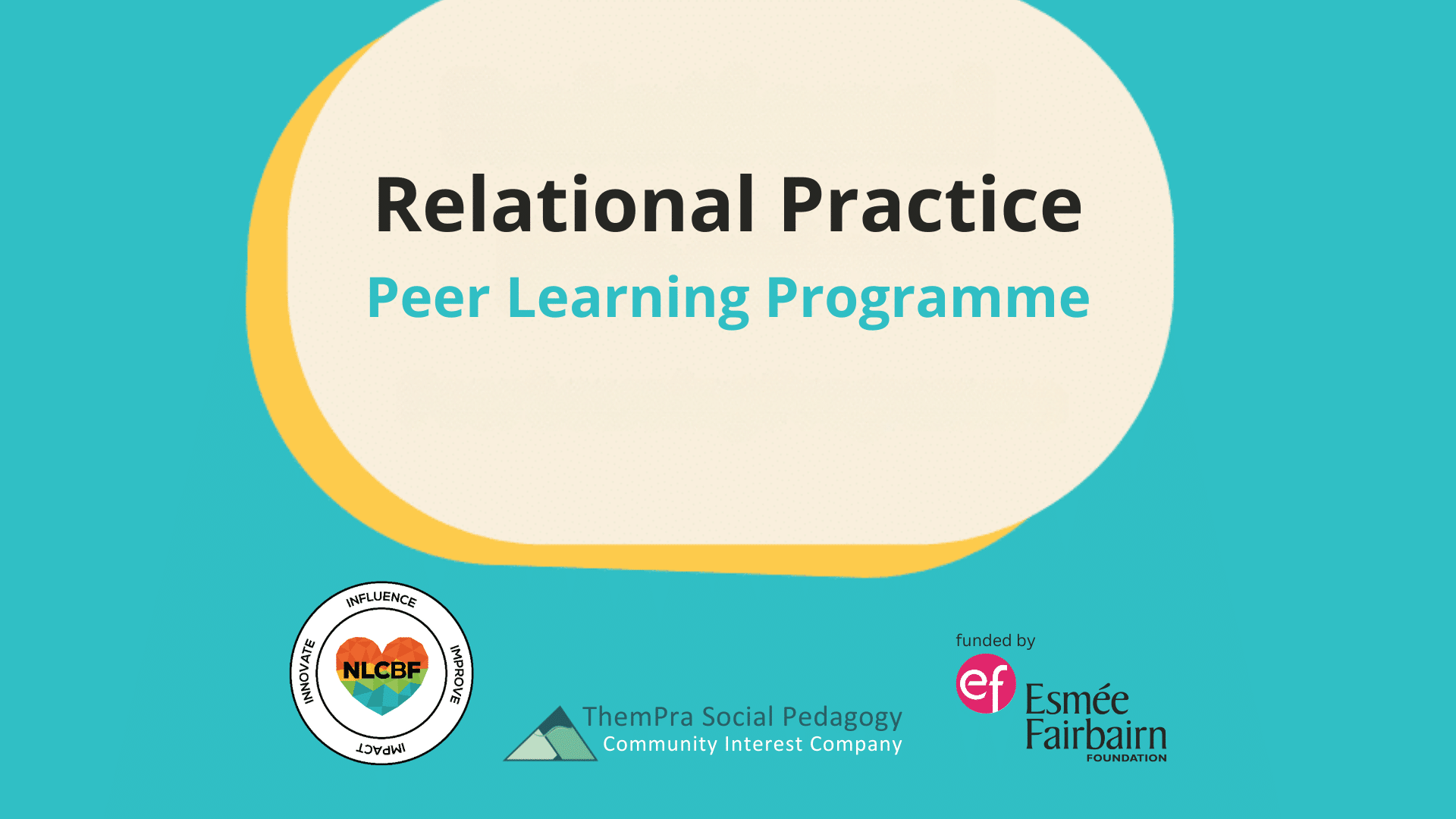Relational Practice: Peer Learning Programme Background
The Relational Practice Peer Learning Programme: Introduction
The Relational Practice Peer Learning Programme aimed to encourage those working with young people leaving care in Local Authorities and voluntary organisations to work in more relational ways. Participants on the Programme identified a focused project in which to introduce or strengthen their relational practice, and came together over nine months to learn together, share progress and plan next steps.
The programme was funded by the Esmée Fairbairn Foundation and delivered by the National Leaving Care Benchmarking Forum, and the participants were 12 Local Authorities and three voluntary organisations working in England. The format of the programme was six half-day online sessions facilitated jointly by Janet Grauberg (Esmée Fairbairn Leaving Care Learning Programme) Darren Bishton (National Leaving Care Benchmarking Forum) and Gabriel Eichsteller (ThemPra Social Pedagogy CIC).
Key Learning from the programme
We identified seven key learning points from the Peer Learning Programme:

The Resources: Learning from the programme
- The summary report of the learning from the programme – Relational Practice Programme Summary
- The full report of the learning from the programme – Relational Practice Programme Full Report
- Examples of how participants have used the learning to develop their relational practice
How might you use these resource?
You could use these resources to prompt discussion about working more relationally in your organisation (share them with colleagues, discuss them in supervision and in a team meeting). Jump in and make a small change. Go for it, start with a small, focused project!
Some ideas for action:
- Looking at the videos, are there specific groups of young people (such as former unaccompanied asylum-seeking children or young parents) who would really value support to build relationships with each other?
- Thinking about the concept of interdependence, are there small changes you could make to your transition planning and life skills work that prompt thinking about what it means to be interdependent, as well as independent?
- Looking at the enablers to relational working (slides 23 – 25 of the Full Report), is there a professional relationship (within your organisation or a partner organisation) with whom you could work more relationally, in order to support young people better?
Where can I find out more?
Below you can watch the recording of our webinar accompanying this blog.
This blog is part of a series of resources drawing on the peer learning programme and containing young people’s views, evidence and case studies of why working relationally is important for practice with care experienced young people.
Find out more: Relational Practice Resources
